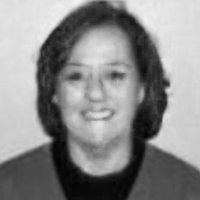Question
I am working with an 18 month old girl who has no single words. She babbles little but seems to understand much receptively. She likes shape sorters, can identify some animals and daily objects and can follow a simple one step direction when she chooses.
Answer
For late talking toddlers, begin by targeting animal sounds (simple CV syllable shapes such as MOO and BAA) and single words that start with sounds she can already make (usually bilabials) such as MAMA, BABY, MORE, BALL, BOOK, BUBBLES. Use a focused stimulation approach, that is, know your targets and provide multiple models. Research shows you don't even have to try to elicit a response from the child as the multiple models are planting a seed. (I do try to elicit production of the target word after the multiple models, but don't dwell on it.) Introduce signs so the child can communicate now, even if not verbally.
Once you know your target sounds and words, choose books, songs, and toys that provide contexts for you to model the words/signs and required opportunities for the child to produce them. Build an integrated session around the target words. For example, to elicit animal sounds, sing Old MacDonald, read I CAN SAY THAT (by Suzy Lederer), play with a barn and only the animals whose sounds and names you are targeting. Introduce simple pretend play (a symbol system much like language) to work on symbolic development. Feed the BABY, give BABY a bath, read BABY a book, put BABY to sleep. Play reciprocal games with a BALL to work on interpersonal communication. Talk about the BALL over and over! And of course, POP lots of BUBBLES. Make up your own song about bubbles as you POP!
Finally, if after a few months there is still no progress verbally (especially if the child has learned the signs), be sure to rule out a motor speech problem.
Susan Hendler Lederer, Ph.D. is an Associate Professor the Department of Communication Sciences & Disorders at Adelphi University, Garden City, Long Island, NY. She is a state licensed and nationally certified speech-language pathologist with over 25 years of professional experience in the areas of speech, language, and emergent literacy development and disorders.

